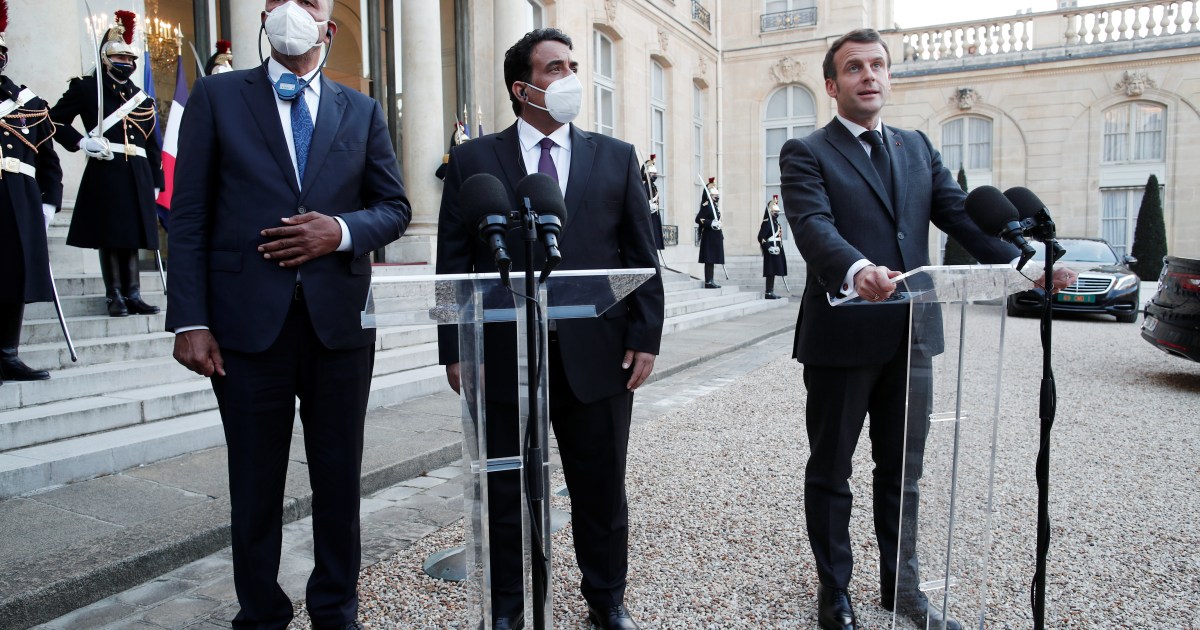French President Emmanuel Macron received the head of the Libyan Presidency Council, Mohamed Al-Manfi, and his deputy, Musa Al-Koni, at the Elysee Palace, on their first foreign visit.
The talks dealt with developments during the transitional period after the takeover of the Libyan government.
France had announced its full support for the new executive authority in leading the political transition in Libya until the elections of December 24 next, and its desire to restore Libya to its full sovereignty, unity and stability.
After their talks at the Elysee Palace, the French President stressed the need to leave all foreign forces and foreign fighters present in Libya, and to enable the unified Libyan security forces under the authority of the Presidential Council to assume the security mission in the country.
He said: We have to work together so that the foreign forces present on Libyan soil leave as soon as possible.
The Russian, Turkish, and foreign fighters who have been brought into Libya should leave as soon as possible.
And he indicated that the unified forces under the new Libyan authority are the only legitimate forces, and they are the ones who must achieve the security of the Libyan soil, indicating that he will be very firm with the Europeans in this regard, and this firmness will be expressed by Paris before the United Nations.
Macron also called on everyone who has a special agenda to stop destabilizing Libya, stressing that France will help the authority in Libya to extend its full control over the country's borders.
EN DIRECT |
Déclaration conjointe du Président @ EmmanuelMacron et du Président du Conseil présidentiel libyen Mohamed Al-Manfi.https: //t.co/OwQVBbxX3S
- Élysée (@Elysee) March 23, 2021
Open the embassy
After receiving him in exile, Macron announced that his country would reopen its embassy in the capital, Tripoli, starting next Monday.
It is reported that the French diplomatic mission in Libya closed in 2014, although it remained active.
It is noteworthy that, on the fifth of last February, the Forum for Political Dialogue - under the auspices of the United Nations - elected a unified executive authority, which includes a government headed by Abdel Hamid al-Dabaiba, and a presidential council headed by Muhammad al-Manfi.
To lead the country to the parliamentary and presidential elections scheduled for December 24th.
Libyans hope that the unified authority will contribute to ending years of armed conflict, as a result of the struggle of the forces of retired Major General Khalifa Haftar, the internationally recognized government, over legitimacy and authority in the oil-rich country.

